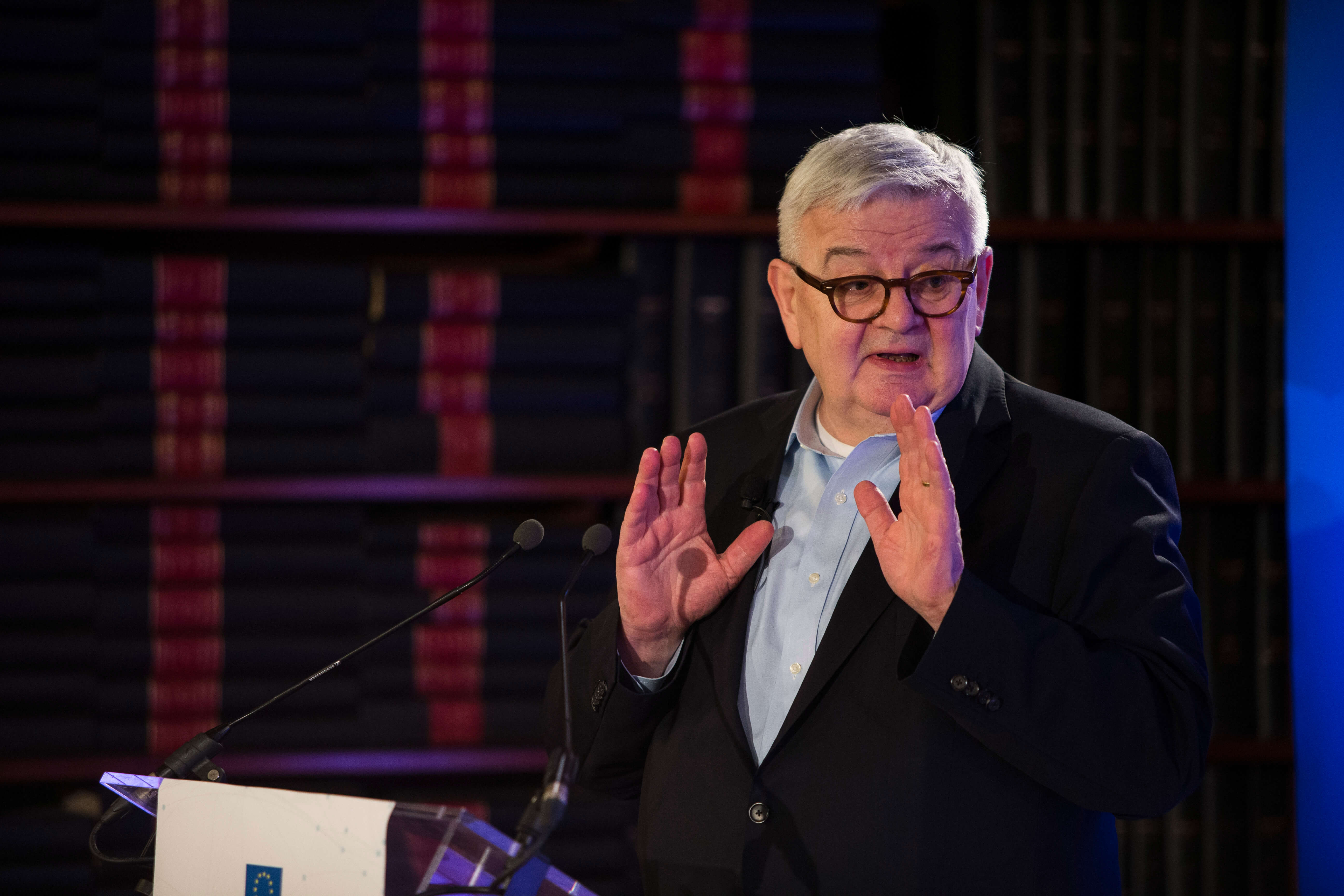We are witnessing the chaotic emergence of a new world order, and the process is being driven by three leaders who are openly hostile to the European Union: US President Donald Trump, Russian President Vladimir Putin, and Chinese President Xi Jinping.
This new order will have little in common with the American-led one that prevailed in the latter half of the twentieth century and into the first two decades of the twenty-first.
While the key national players remain the same, their roles have changed, as have their respective political and economic weights.
Instead of the rules-based international order that the United States forged after World War II, we will see a power-based order shaped exclusively by geopolitics.
Instead of global free trade, we will see zero-sum rivalries between large economic blocs, implying a trend toward autarky.
And instead of an analog world, we will see an increasingly digital one where breakthroughs in AI become decisive factors in economic life, possibly even determining political control.
Europe is more than a geographical designation
This transformation is undoubtedly the dominant global macro trend of our time. It will not only affect Europe, but will likely determine whether Europe survives in any recognizable form.
After all, “Europe” is more than a geographical designation. It is a political reality; a continental confederation-like grouping of closely intertwined states, anchored not by military might but through shared ideas and values.
Postwar Europe was extremely successful as an economic-unification project among formerly hostile states
Like the US-led international order that is now disappearing, the EU took shape in the immediate postwar period in Western Europe.
Postwar Europe was extremely successful as an economic-unification project among formerly hostile states.
It thrived under the military and political security provided by the US defense umbrella and the postwar system of global trade, which America helped expand and sustain.
Political crises
But as the decline of the US order became more visible in recent years, the EU experienced severe political crises.
The year 2016 offered a double blow, with the United Kingdom voting to leave the Union, and Americans electing Trump for the first time. Looking back, we now know that these developments changed everything.
Owing to China’s rise and the 2008 financial crisis, the stage had already been set for global upheaval.
And though Brexit and Trump’s shocking victory were not seen as a death knell for the US-led order at the time, they unleashed destructive forces that had been lurking beneath the surface for quite some time.
The potency of these forces became apparent with Putin’s full-scale invasion of Ukraine in February 2022, followed by Trump’s re-election last year.
The most important European capitals understood that the situation had fundamentally changed
In the event, petty disputes between the UK and the EU were soon forgotten, replaced by a new military solidarity with Ukraine and a new collective effort to achieve defense and security solidarity across Europe.
Policymakers and political leaders in London, Brussels, and the most important European capitals understood that the situation had fundamentally changed.
The new, harsh reality – personified by Putin – forced all Europeans (whether inside or outside the EU) back into the same geopolitical boat. When it comes to security, Europeans have a shared interest.
Norway and the UK are just as vulnerable to the effects of Russian military aggression as are Poland, Finland, Sweden, Germany, and France.
Two scenarios
European leaders and most citizens understand that if Trump were to end America’s security guarantee and withdraw US troops, Europe would need to defend its borders – and its very existence – on its own.
Threatened by Putin and pressured by Trump, Europe must find a way to develop its own independent defense capabilities.
 All European countries, whether inside or outside the EU, must rearm and develop plans for either of two scenarios: one with America in the picture, and one without it - Joschka Fischer
All European countries, whether inside or outside the EU, must rearm and develop plans for either of two scenarios: one with America in the picture, and one without it - Joschka Fischer
Though it should maintain the transatlantic partnership as long as possible, it cannot ignore the fact that America, under Trump, is fundamentally unreliable.
There must be a Plan B. All European countries, whether inside or outside the EU, must rearm and develop plans for either of two scenarios: one with America in the picture, and one without it.
In both cases, European countries must work together as closely as possible, not only on defense, but on revitalizing the European economy.
This requires joint leadership from bigger players like France, the UK, Germany, Italy, and Poland, all of which have the necessary humanitarian, military, and economic resources – and now the political will.
Faced with today’s realities, yesterday’s ideological differences have become almost meaningless.
The central issues in European politics no longer relate to EU enlargement, integration, and national independence; they are, above all, about defending European freedom and upholding common values.
Joschka Fischer, Germany’s foreign minister and vice chancellor from 1998 to 2005, was a leader of the German Green Party for almost 20 years.